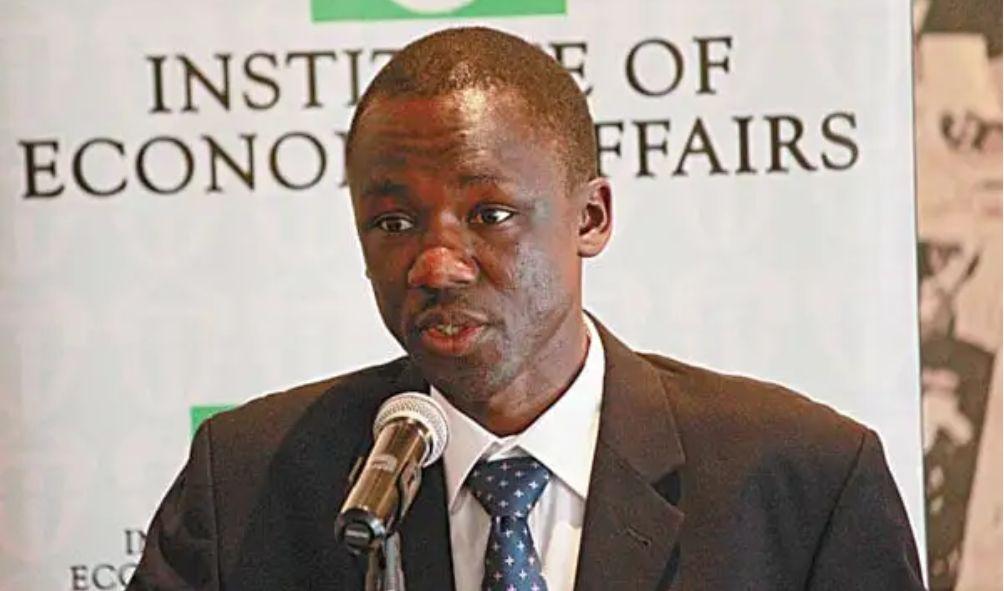Unraveling the Pitfalls of Government Housing Fund: Insights by Kwame Owino
Kwame Owino, the chief executive officer of the Institute for Economic Affairs, insists that the National Housing Levy proposed in the Finance Bill, 2023 is a “bad idea” and that Kenyans should not be duped into accepting it.
During a Wednesday debate on the Finance Bill hosted by Citizen TV, Owino stated that the government’s vigorous efforts to implement the housing levy program are intended to fulfill commitments made to contractors and other Housing program beneficiaries.
“Kenyans…anyone who has the opportunity to listen to me, I am not an elected member of parliament, I am not running for office, and I am not a government employee. Let me tell you, this is a terrible plan,” Kwame said.
“We are incorrectly defining this issue because the PSs (Principal Secretaries) have made promises to people who are supposed to build houses and given them free land to do so,” he stated.
According to Owino, President William Ruto’s administration is dishonest with Kenyans about its proposal and seeks to benefit a small portion of the population.
ALSO READ: Resolve Internal Conflicts and Prioritize Service to Siaya: Oburu Urges Orengo and Deputy
“The PS (Hinga) stated that they already have people whom they call investors but who are not putting their own money, but the investors are being told to construct with the certainty that this fund will cover the risk by paying them,” said Owino.
He added, “Government is currently taxed at 11% or 12%; therefore, taxes are being used for redistribution, which is not a bad thing. However, let us not redistribute money among Kenyans using deception.”
Owino argues that the State would have been better off allowing investors to construct the homes first and providing a guarantee to the successful contractor.
“If the fund was a good idea, the same private investors we’re discussing wouldn’t need the government; they’d say, ‘Let us build the houses, and then anyone can buy them,'” he explained. “This provides certainty to whoever is doing the construction because we have an off-take plan.”
“Why is it important to spend this money to create a fund, which they refer to as a fund that helps to cover that risk, so that whoever constructs can be assured that the government will assume…It is a financial structure referred to as a fund, not a funding scheme.”
Owino ridiculed the Fund, stating that it was an additional burden for Kenyans, particularly those in the public sector.
ALSO READ: Kamau Thugge’s Appointment as CBK Governor Receives MPs’ Approval
Referring to the already existing housing mortgage, which he reiterated is being financed by taxpayers, Owino stated that the majority of Kenyans struggled with low income and did not necessarily require better housing.
“Members of Congress have informed us that this will be affordable housing for homeowners. There is already a high-cost housing subsidy in Kenya; it is given to members of parliament and those who work in the public sector so that they can take out mortgages of up to Ksh.9 million, and it is funded by our taxes,” he explained.
He suggested that if the government was serious about resolving the nation’s housing crisis, it should focus on increasing income levels rather than building houses for citizens and compelling them to purchase them.
“If the government wants to build houses for people who live in slums or are poorer, that is not a bad thing,” he said. “Article 43 of the Constitution, just like phrases in the Bible, is misused frequently in Kenya today; the Constitution states that people have a right to housing and other rights, but it does not state that the government must force us to pay for it.”
“There are 14 million houses of varying quality in Kenya…The issue is not one of housing. In Nairobi, for example, there are unoccupied houses; however, the problem is that people lack sufficient income to pay for them. It means that the employer is taxed and will pay a maximum of Ksh. 2500, but we are told that it is not a tax,” said Owino.
ALSO READ: The Lingering Shadows: Allowances from 22 Years Ago Haunt ODM Elections Chair
Additionally, the CEO of the Institute for Economic Affairs disputes the government’s claim that the Affordable Housing Program will generate numerous jobs.
“According to the Kenya National Bureau of Statistics, there are 14 million households in Kenya; if 14 million households have not created the overflowing employment opportunities that you have, why do these individuals believe that building 250,000 houses in one year will do so?” In response to Housing PS Charles Hinga’s remark, Owino stated, “You are lying to us.”
Unraveling the Pitfalls of Government Housing Fund: Insights by Kwame Owino
HEY READER. PLEASE SUPPORT THIS SITE BY CLICKING ADS. DON’T FORGET TO HIT THE NOTIFICATION BELL FOR MORE UPDATES AROUND THE GLOBE.
